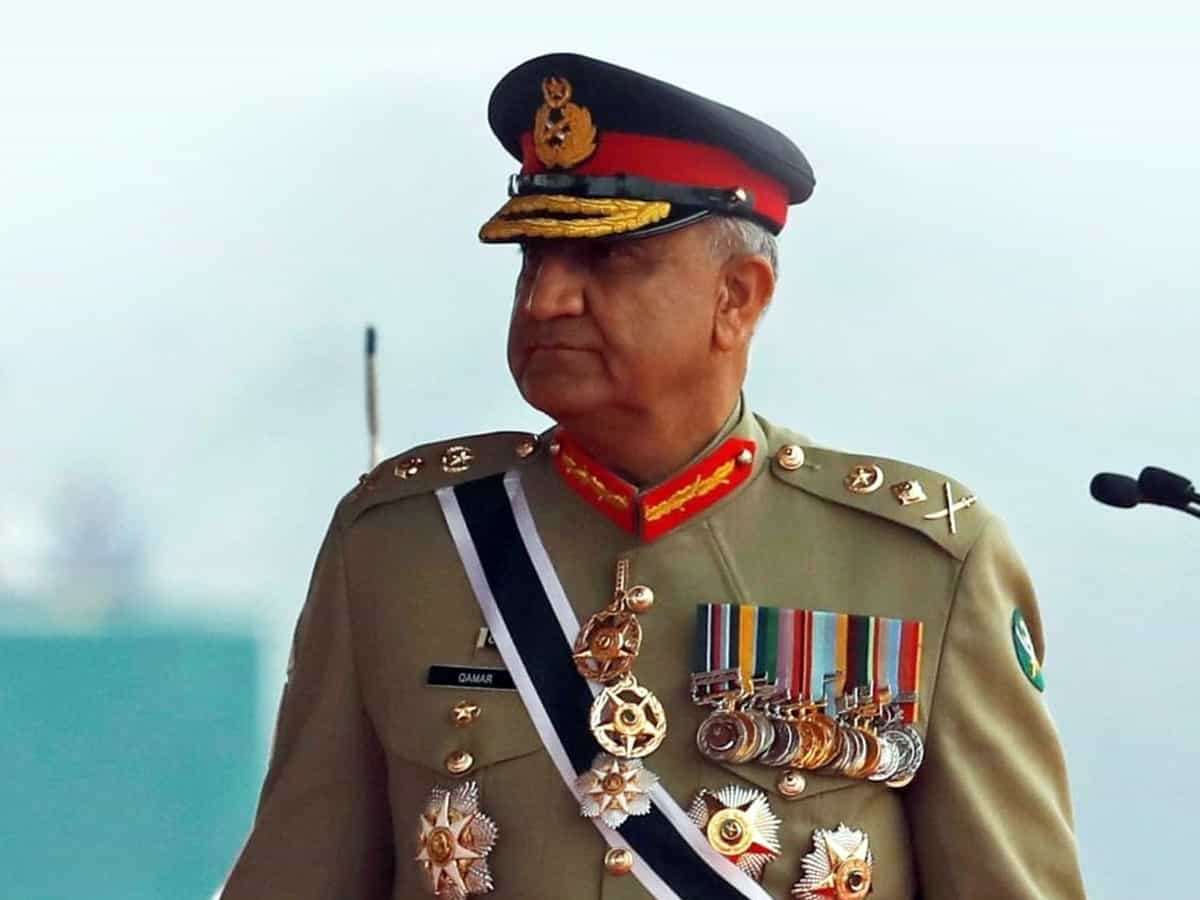
Pakistan army chief Gen. Qamar Javed Bajwa is making news in the United States by making announcements about the army’s role in his country, but the message is for the larger audience across the western world, holding out assurance that the army will not overstep its defined lines. It has particular resonance for India as well because the Pakistani establishment and its players devise policies, which so far have been quite hostile. The political setup and the army’s role in Pakistan are of special interest and attention for India.
Gen. Bajwa had spoken of peace with India a number of times during his tenure, though he continued to insist on the Kashmir solution. It was during his tenure ceasefire on the Line of Control that divides Jammu and Kashmir between India and Pakistan was renewed on February 2021. The original ceasefire was proposed and implemented in November 2003 during Gen. Pervez Musharraf’s tenure as the military ruler of Pakistan, though subsequently from 2009 onwards it was violated hundreds of times.
His assurance made during a luncheon meeting at the Pakistani embassy in Washington that the armed forces will not meddle in the country’s politics has come at a time when a campaign against the army has been intensified by the former premier Imran Khan, who is unable to restrain himself and his anger against the army for not having stood by him when he faced a no-confidence motion in the National Assembly in march- April this year. The no-confidence motion was passed and led to his ouster from the government on April 10. Imran’s campaign has placed the army in an awkward position and raised doubts in the political circles that the army may repeat what it did during the era of Gen. Ayub Khan, Gen. Zia-ul-Haq and Gen. Pervez Musharraf, all of whom had toppled the civilian governments and imposed martial law.
Gen. Bajwa’s place of making this militarily and politically significant statement, which is resonating in Pakistan and other countries, is to position the army on a neutral pedestal where it responds to its line of duty only, and all the political developments that have taken place in the country were neither of its makings nor because of it. For this, the backdrop of the ouster of Imran Khan in April offers many explanations. Imran had charged the US of hatching a conspiracy to “ oust “ him because he was not obliging Americans by following their guidelines. He charged the then opposition parties, particularly PML-N, and PPP – now in power in Pakistan- with having partnered in Washington -driven conspiracy. He had also accused the army and its claim of neutrality of having worked against him, as without the support of the armed forces, regime change would not have happened in Islamabad.
The army chief, in fact, was clarifying his position and that of the army operating under him, and also laid the ground rules for the force under the command of his successors. Therefore, it was important for him to clear his role as he also asserted that as the army chief of the day, he had no intention to stay beyond November 29, the date of his superannuation. This was an attempt to dispel the impression, widely held within Pakistan and also abroad, and more importantly, within the Pakistan army that he would ask for and get second extension – he had got one three-year extension in 2019.
Dawn newspaper reported on Wednesday, ”Gen. Bajwa assured the nation on Tuesday that the armed forces have distanced themselves from politics and want to remain so.” And also added that the army chief “reiterated his pledge to leave after the completion of his second three-year term in two months, saying that he would do as he promised earlier. He made these remarks at a lunch at the Pakistan Embassy in Washington.”
The newspaper attributed these remarks to Gen. Bajwa as to the guests who attended the lunch at the Pakistani embassy in the US capital
According to the people who attended, Gen Bajwa addressed the gathering before lunch and then also made informal remarks while talking to his guests. He reminded the nation that reviving the country’s ailing economy should be the first priority of all segments of society, adding that without a strong economy the nation would not be able to achieve its targets.
“There could be no diplomacy either without a strong economy,” said the army chief in his address to an audience that included a large number of Pakistani diplomats.



